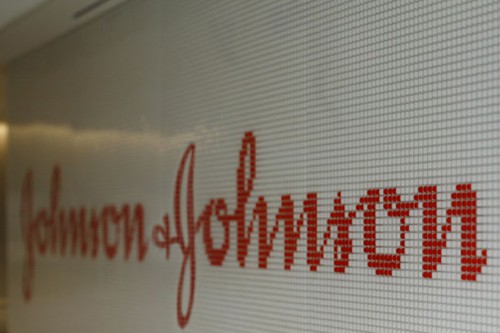
Johnson & Johnson kicked off the interim results season with a decline in revenues that could be attributed in part to the start of biosimilar competition for one of its top-selling drugs.
Revenues fell nearly 9% to $17.8bn, with prescription pharma sales fairly flat at $7.9bn as competition from Gilead Sciences and AbbVie’s new hepatitis C virus therapies took its toll on J&J’s Olysio (simeprevir) and Incivek (telaprevir) products.
All eyes were however on blockbuster anti-inflammatory product Remicade (infliximab) – J&J’s biggest-selling drug – and figures released yesterday showed that worldwide sales were down 7% to $1.67bn in the quarter, with sales to markets outside the US down 26% to $580m.
A biosimilar version of the drug developed by Korean company Celltrion and sold outside the US contributed to the decline, and is expected to have an even bigger impact once it comes to market in the US, where it is licensed to Hospira.
J&J chief executive Axel Gorsky acknowledged the interest in the biosimilar effect on sales erosion but stressed that “biosimilars are not generics” and so the market will react differently.
While conventional generics can snatch 70% or more of a brand’s market once patents expire, biologics tend to be more resilient – in part because the price of biosimilars tends to be closer to the brand than their generic counterparts.
“We also have a [US] patent for the Remicade antibody that doesn’t expire until September 2018 that you can be sure we will continue to vigorously defend,” he told investors on a conference call yesterday.
While biosimilars for first-generation biologics such as human insulins and red and white blood cell stimulators have been on the market outside the US for some time, it was only towards the end of 2013 that the first monoclonal antibody (mAb) drugs started seeing rivals biosimilar versions reach the market.
Now, with many of the first mAbs starting to lose patent protection, investors are trying to gauge how the loss of market exclusivity for these products – whose number includes some of the world’s biggest-selling drugs – will play out financially.
J&J’s vice president of investor relations Louise Mehrotra told investors that in Europe – where the patent for Remicade expired in February – biosimilars have captured market share in the “mid-single digits”.
J&J had plenty of positive news to report, however, including a 31% increase in sales of novel oral anticoagulant Xarelto (rivaroxaban) to $472m in the quarter and rapid-take up of diabetes therapy Invokana (canagliflozin), which – along with combination follow-up Invokamet (canagliflozin and metformin) – saw sales increase to $318m from $117m in the same period of 2014.
Gorsky said J&J has seven recently-launched products that are expected to top $1bn this year, with another 10 due for filing by 2019 with similar sales annual potential.
Away from the prescription pharma business, J&J’s consumer healthcare sales fell 7% to $3.5bn while revenues at the medical devices unit declined more than 12% to $6.4bn. J&J is in the process of selling its Cordis cardiovascular stent unit to Cardinal Health.




